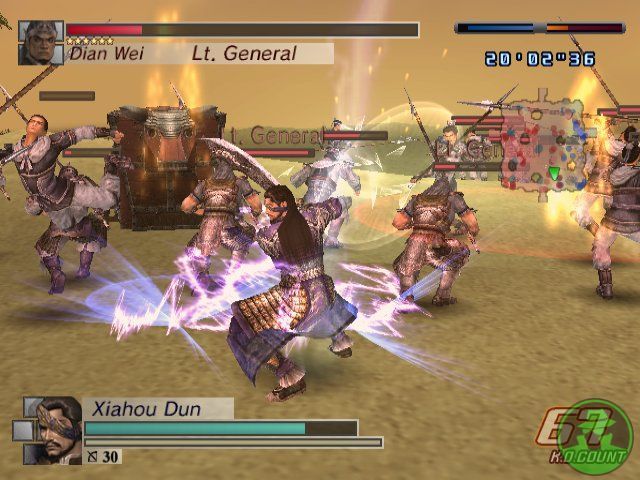
Shin Sangoku Musou 4 Iso Ps2 S
Liquid glass repair cracked block. Shin Sangoku Musou 4 Special is the first installment of Koei's Dynasty Warriors franchise to appear on the Xbox 360. Shin Sangoku Musou 4 Special is the first installment of Koei's Dynasty Warriors franchise to appear on the Xbox 360.
This article needs additional citations for. Unsourced material may be challenged and removed. Find sources: – ( December 2016) () Dynasty Warriors (1997–2010) (2010–present) Platform(s),,,,,,,,,,,,,, February 28, 1997 May 8th, 2018 Dynasty Warriors ( 真・三國無双, Shin Sangokumusō, 'True ・ Three Kingdoms Unrivalled') is a series of video games created.

The series is a spin-off of Koei's turn-based strategy series, based loosely around the Chinese historical text, from which it derives its name in Japanese. The first game titled, Sangokumusō in Japan, is a and different from the rest of the series.
All English titles are a number ahead of their Japanese counterparts due to the English localization of naming, a spin-off of the previously mentioned Sangokumusō game, as Dynasty Warriors 2. It is Koei's most successful franchise. Including its many spin-offs, 18 million copies of the Dynasty Warriors series have sold worldwide by 2011. Contents • • • • • • • • • • • • Main series [ ] Timeline of release years 1997 1998 1999 2000 2001 2002 2003 2004 2005 2006 2007 2008 2009 2010 2011 2012 2013 2014 2015 2016 2017 2018 The first ( Sangokumusō) is a traditional one-on-one, released in 1997 for the. Its gameplay style is reminiscent of.
The next game was released in Japan as Shin Sangokumusou. This game was released in other countries as, leading to the discrepancy in title numbers. From this game onwards, the player chooses a and plays a number of levels representing particular battles in the period, eventually defeating all other rival kingdoms and uniting China under a common ruler.
In this game mode, known as 'Musou Mode', the generals are usually chosen from one of the three kingdoms (, or; however, from Dynasty Warriors 3: Xtreme Legends onwards, independent generals were given full stories as well). Has two secret characters, and, that are not playable in Musou Mode.,, and have individual Musou Modes for each character.
In,, and, each of the Three Kingdoms has its own Musou Mode, which all characters from a particular kingdom would play. The stages are presented in a view, with the camera set behind the player as they engage the enemy forces. Each scenario can have different win/lose conditions, but the common losing conditions (defeat of the, health bar reaching zero and maximum time limit reached) still hold. As for the other characters not from either of the Three Kingdoms, their Musou story modes are purely fictional since in Romance of the Three Kingdoms, most or all of them were eliminated until only the Three Kingdoms were left. In Dynasty Warriors 5, a relatively more realistic Musou Mode is introduced for each character. Instead of participating in the entire set of their kingdoms' events, the characters appear only in certain battles that they had fought in, as according to the novel or factual history. Therefore, characters will start at different points in time and they may never have opportunities to encounter some of the other characters (e.g.: will never meet or in his Musou Mode).
In between stages there are some dramatic cutscenes, in which the character will express his/her thoughts on the situation, adding a more personal touch and keeping the player updated on the events. Besides, a character's Musou Mode may end before the unification of China at any point of time, stopping for most at their historical point of death. However, some characters such as the three founders may continue to participate in battles that occurred after their deaths (e.g.: appearing in ), representing an extended leadership under more successful circumstances.